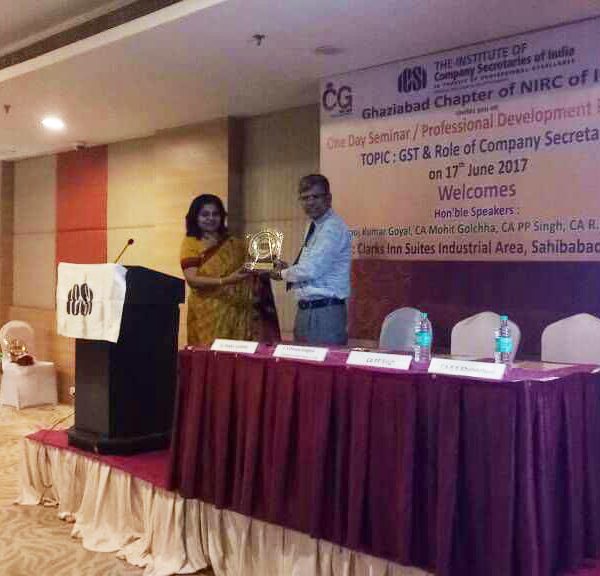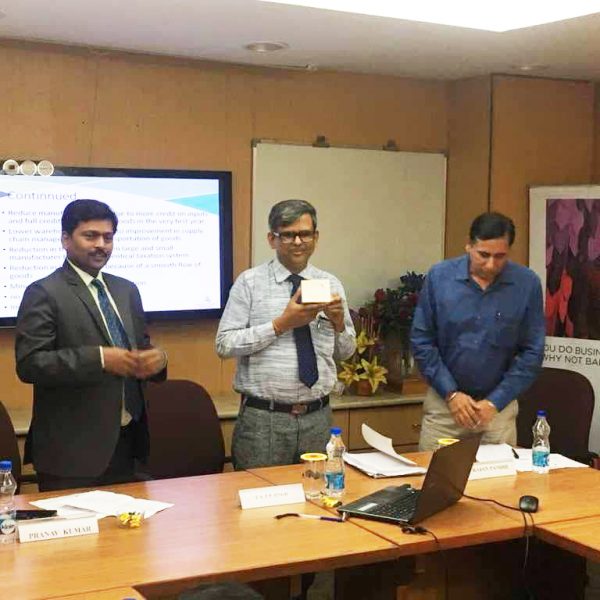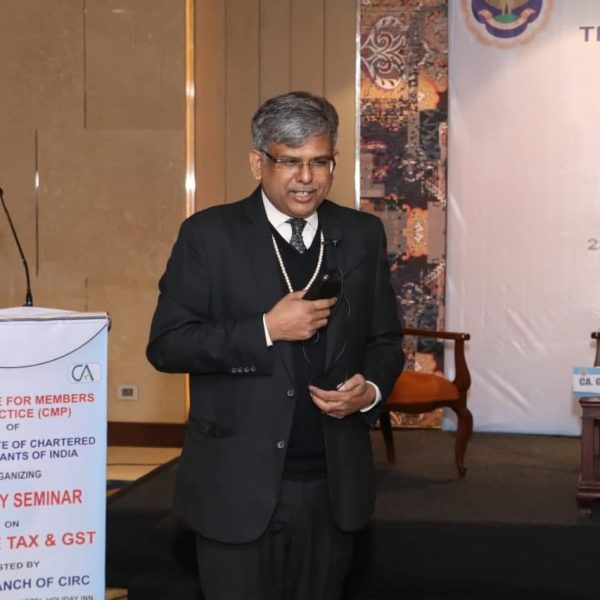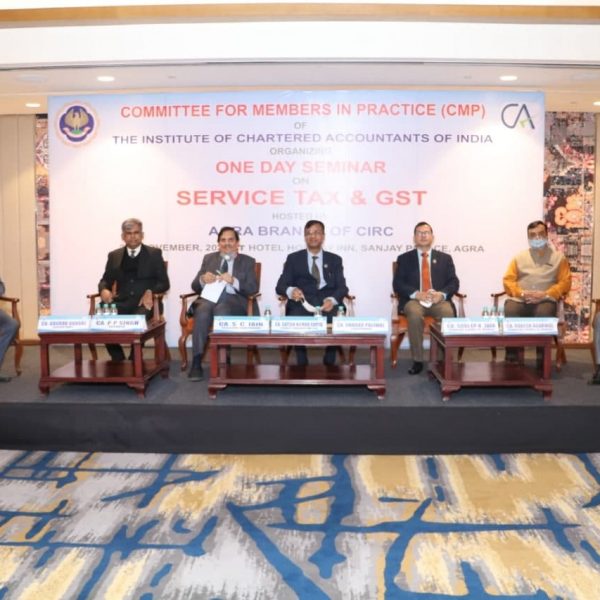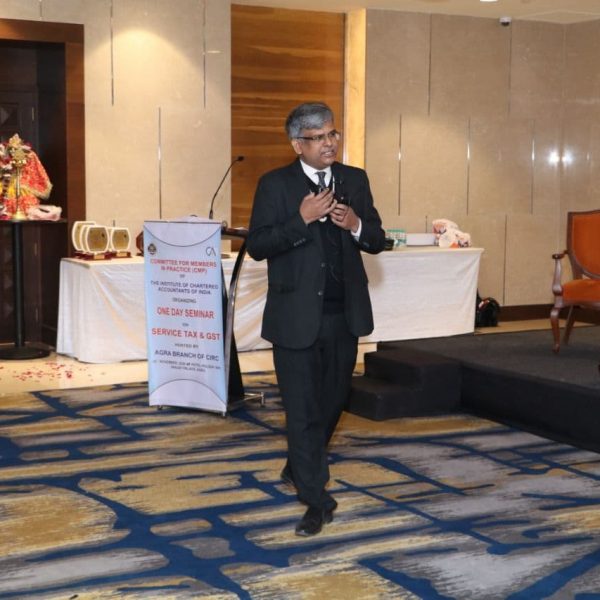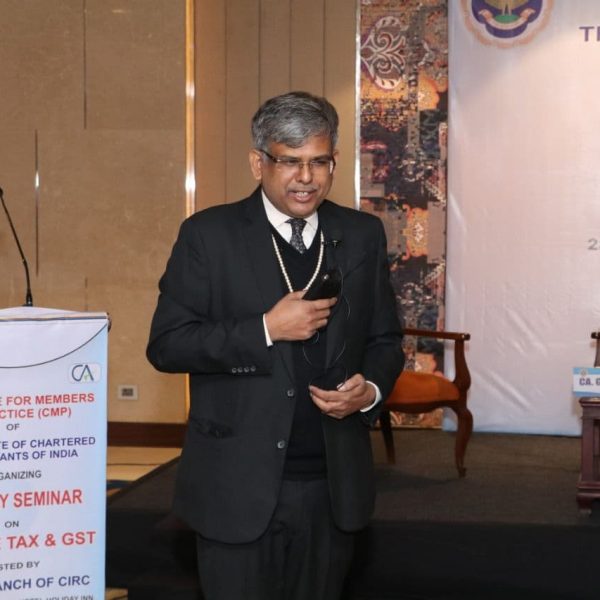Frequently Asked Questions (FAQs) on DPT-3
Q1. What is Deposit?
According to Section 2(31) of the Companies Act, 2013 read with rule 2(1)(c) of the Companies (Acceptance of Deposit ) Rules, 2014:
“DEPOSIT” includes any receipt of money by way of deposit or loan or in any other form by a company, but does not include such categories of amount as prescribed in Rule 2(1)(c).
So deposit is every receipt of money by the Company which is not included in exclusion list given in Rule (2)(1)(c).
Q2. What is “Exempted Deposit”?
The amounts received by a company but excluded from being deposits as per the list provided in Rule 2(1)(c) are exempted deposits.
Q3. What is included in Exclusion list or what is Rule 2(1)(c)?
Receipt of money by the Company of following nature are excluded from the definition of deposit (or Simply the “Exclusion list”)
(i) any amount received from the Central Government or a State Government, or any amount received from any other source whose repayment is guaranteed by the Central Government or a State Government, or any amount received from a local authority, or any amount received from a statutory authority constituted under an Act of Parliament or a State Legislature;
(ii) any amount received from foreign Governments, foreign or international banks, multilateral financial institutions (including, but not limited to, International Finance Corporation, Asian Development Bank, Commonwealth Development Corporation and International Bank for Industrial and Financial Reconstruction), foreign Governments owned development financial institutions, foreign export credit agencies, foreign collaborators, foreign bodies corporate and foreign citizens, foreign authorities or persons resident outside India subject to the provisions of Foreign Exchange Management Act, 1999 (42 of 1999) and rules and regulations made there under;
(iii) any amount received as a loan or facility from any banking company or from the State Bank of India or any of its subsidiary banks or from a banking institution notified by the Central Government under section 51 of the Banking Regulation Act, 1949 (10 of 1949), or a corresponding new bank as defined in clause (d) of section 2 of the Banking Companies (Acquisition and Transfer of Undertakings) Act, 1970 (5 of 1970) or in clause (b) of section (2) of the Banking Companies (Acquisition and Transfer of Undertakings) Act, 1980 (40 of 1980) , or from a co-operative bank as defined in clause (b-ii) of section 2 of the Reserve Bank of India Act, 1934 (2 of 1934) ;
(iv) any amount received as a loan or financial assistance from Public Financial Institutions notified by the Central Government in this behalf in consultation with the Reserve Bank of India or any regional financial institutions or Insurance Companies or Scheduled Banks as defined in the Reserve Bank of India Act, 1934 (2 of 1934);
(v) any amount received against issue of commercial paper or any other instruments issued in accordance with the guidelines or notification issued by the Reserve Bank of India;
(vi) any amount received by a company from any other company;
(vii) any amount received and held pursuant to an offer made in accordance with the provisions of the Act towards subscription to any securities, including share application money or advance towards allotment of securities pending allotment, so long as such amount is appropriated only against the amount due on allotment of the securities applied for;
Explanation.- For the purposes of this sub-clause, it is hereby clarified that –
(a) Without prejudice to any other liability or action, if the securities for which application money or advance for such securities was received cannot be allotted within sixty days from the date of receipt of the application money or advance for such securities and such application money or advance is not refunded to the subscribers within fifteen days from the date of completion of sixty days, such amount shall be treated as a deposit under these rules.
(b) any adjustment of the amount for any other purpose shall not be treated as refund.
(viii) any amount received from a person who, at the time of the receipt of the amount, was a director of the company or a relative of the director of the Private company:
Provided that the director of the company or relative of the director of the private company, as the case may be, from whom money is received, furnishes to the company at the time of giving the money, a declaration in writing to the effect that the amount is not being given out of funds acquired by him by borrowing or accepting loans or deposits from others and the company shall disclose the details of money so accepted in the Board’s report;”.]
(ix) any amount raised by the issue of bonds or debentures secured by a first charge or a charge ranking pari passu with the first charge on any assets referred to in Schedule III of the Act excluding intangible assets of the company or bonds or debentures compulsorily convertible into shares of the company within 6[Ten years]:
Provided that if such bonds or debentures are secured by the charge of any assets referred to in Schedule III of the Act, excluding intangible assets, the amount of such bonds or debentures shall not exceed the market value of such assets as assessed by a registered valuer;
(ixa) any amount raised by issue of non-convertible debenture not constituting a charge on the assets of the company and listed on a recognised stock exchange as per applicable regulations made by Securities and Exchange Board of India.;
(x) any amount received from an employee of the company not exceeding his annual salary under a contract of employment with the company in the nature of non-interest bearing security deposit;
(xi) any non-interest bearing amount received and held in trust;
(xii) any amount received in the course of, or for the purposes of, the business of the company,-
(a) as an advance for the supply of goods or provision of services accounted for in any manner whatsoever provided that such advance is appropriated against supply of goods or provision of services within a period of three hundred and sixty five days from the date of acceptance of such advance:
Provided that in case of any advance which is subject matter of any legal proceedings before any court of law, the said time limit of three hundred and sixty five days shall not apply:
(b) as advance, accounted for in any manner whatsoever, received in connection with consideration for an immovable property under an agreement or arrangement , provided that such advance is adjusted against such property in accordance with the terms of agreement or arrangement;
(c) as security deposit for the performance of the contract for supply of goods or provision of services;
(d) as advance received under long term projects for supply of capital goods except those covered under item (b) above:
(e) as an advance towards consideration for providing future services in the form of a warranty or maintenance contract as per written agreement or arrangement, if the period for providing such services does not exceed the period prevalent as per common business practice or five years, from the date of acceptance of such service whichever is less;
(f) as an advance received and as allowed by any sectoral regulator or in accordance with directions of Central or State Government;
(g) as an advance for subscription towards publication, whether in print or in electronic to be adjusted against receipt of such publications;
Provided that if the amount received under items (a), (b) and (d) above becomes refundable (with or without interest) due to the reasons that the company accepting the money does not have necessary permission or approval, wherever required, to deal in the goods or properties or services for which the money is taken, then the amount received shall be deemed to be a deposit under these rules:
Explanation.- For the purposes of this sub-clause the amount 4 &10[Omitted] shall be deemed to be deposits on the expiry of fifteen days from the date they become due for refund.
(xiii) any amount brought in by the promoters of the company by way of unsecured loan in pursuance of the stipulation of any lending financial institution or a bank subject to fulfillment of the following conditions, namely:-
(a) the loan is brought in pursuance of the stipulation imposed by the lending institutions on the promoters to contribute such finance;
(b) the loan is provided by the promoters themselves or by their relatives or by both; and
(c) the exemption under this sub-clause shall be available only till the loans of financial institution or bank are repaid and not thereafter;
(xiv) any amount accepted by a Nidhi company in accordance with the rules made under section 406 of the Act.
Explanation.- For the purposes of this clause, any amount.-
(a) received by the company, whether in the form of instalments or otherwise, from a person with promise or offer to give returns, in cash or in kind, on completion of the period specified in the promise or offer, or earlier, accounted for in any manner whatsoever, or
(b) any additional contributions, over and above the amount under item (a) above, made by the company as part of such promise or offer,
shall be considered as deposits unless specifically excluded under this clause
(d) ‘‘Depositor’’ means,
(i) any member of the company who has made a deposit with the company in accordance with the provisions of sub-section (2) of section 73 of the Act, or
(ii) any person who has made a deposit with a public company in accordance with the provisions of section 76 of the Act;
(e) “Eligible Company” means a public company as referred to in sub-section (1) of section 76, having a net worth of not less than one hundred crore rupees or a turnover of not less than five hundred crore rupees and which has obtained the prior consent of the company in general meeting by means of a special resolution and also filed the said resolution with the Registrar of Companies before making any invitation to the Public for acceptance of deposits:
Provided that an eligible company, which is accepting deposits within the limits specified under clause (c) of sub-section (1) of section 180, may accept deposits by means of an ordinary resolution;
(f) “fees” means fees as specified in the Companies (Registration Offices and Fees) Rules, 2014;
(g) “Form” or ‘e-Form” means a form set forth in Annexure to these rules which shall be used for the matter to which it relates;
(h) “section” means section of the Act;
(i) “trustee” means the trustee as defined in section 3 of the Indian Trusts Act, 1882 (12 of 1882).
(xv) any amount received by way of subscription in respect of a chit under the Chit Fund Act, 1982 (40 of 1982);
(xvi) any amount received by the company under any collective investment scheme in compliance with regulations framed by the Securities and Exchange Board of India;
(xvii) an amount of twenty five lakh rupees or more received by a start-up company, by way of a convertible note (convertible into equity shares or repayable within a period not exceeding 15[ten years] from the date of issue) in a single tranche, from a person.
(xviii) any amount received by a company from Alternate Investment Funds, Domestic Venture Capital Funds, Infrastructure Investment Trusts, Real Estate Investment Trusts and Mutual Funds registered with the Securities and Exchange Board of India in accordance with regulations made by it.
Q 4. What is form DPT 3?
DPT-3 is annual return required to file every year by Companies having deposit or having any amount not considered as deposit as on 31st March within 90 days of end of financial year i.e. 30th June.
Q5. What are the objectives of e-Form DPT-3?
The objective of the form is to file information with Registrar of Companies about Loans, Deposits and Advances at end of financial year.
Q6. On which class or classes of Companies e-Form DPT-3 is applicable?
By the reading of the text of the section and rules it is evidently clear the form is applicable on all companies excluding following:
- a Government Company
- a Banking Company
- a Non-banking Financial Company (NBFC) registered with the Reserve Bank of India
- a housing finance company registered with the National Housing Bank established under the National Housing Bank Act, 1987
However, insurance companies are registered with IRDA, so the obligation to file DPT-3 is also applicable on them.
Q7. What is the due date to file Form DPT 3?
The form DPT-3 is to be filed within 90 days of the closure of the financial year, hence, the due date for filing the annual return is 30th June of every year.
For example, for FY 2020-21, the due date for DPT-03 is 30th June 2021.
Q8. What are different options available in e-form DPT-3?
DPT-3 is to be filed for giving details of following information:
- Onetime Return for disclosure of details of outstanding money or loan received by a company but not considered as deposits in terms of rule 2(1)© of the Companies (Acceptance of Deposits) Rules, 2014.
- Return of Deposit
- Particulars of transactions by a company not considered as deposit as per rule 2 (I) © of the Companies (Acceptance of Deposit) Rules, 2014.
- Return of Deposit and Particulars of transactions by a company not considered as deposit
Q9. What is one time return?
As per the MCA Notifications dated January 22, 2019 and April 30, 2019, the applicable companies are required to file a return of Exempted Deposits during the period from April 01, 2014 to March 31, 2019, in e-Form DPT-3 within 90 days from March 31, 2019 i.e. June 29, 2019.
In plain words Company is required to file details of the amount which has been received at any time between 01st April 2014 to 31st March 2019 and remains outstanding as on 31st March 2019.
Q10. Is Auditor’s certificate mandatory for DPT-3?
If DPT 3 is filed for One Time return or Annual return for outstanding amount other than deposit, it is not mandatory to attach the Auditor’s certificate. However, if the company is filing DPT 3 for Return of Deposit, then Auditor’s certification is required.
Q11. Whether NIL Return is required to be filed?
No, Nil return are not filed.
Thanks
In case of any other queries on DPT-3 reach out to the author
CS Aman Kesarwani
Practicing Company Secretary
E: info@csaka.co.in | M: 7532923631 | w: www.csaka.co.in

